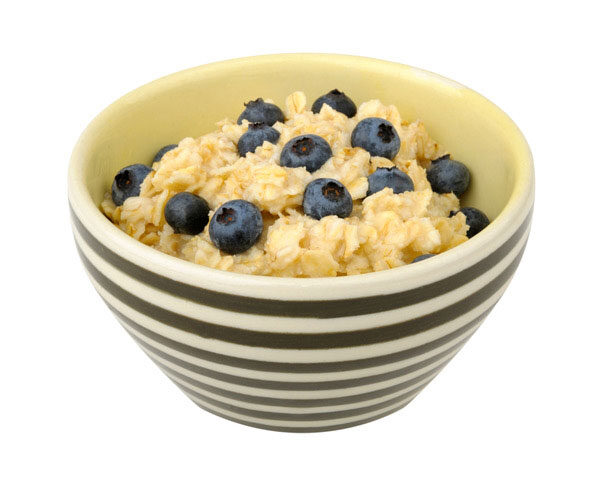The Road to Success: Creating Healthy Habits

Jeff Novick, MS, RD
When we decide to improve our diets and health, what we are really doing is learning new behaviors and making them into habits. We are trying to break old unhealthful habits and develop new healthful ones. These include learning to be more active and learning to make more healthful dietary choices. And, while there are several keys to developing a new habit, three of the most important ones are simplicity, consistency, and repetition.
This issue has come up quite a bit lately in discussions and counseling with clients and I believe it is partly (if not largely) due to the influence of social media. Social media is giving us access to a constant flow of enormous amounts of information.
The Trouble with Social Media
One example of this is the many online summits, documentaries and symposiums, which seem to attract a lot of attention and viewers. I regularly hear from people on this program who are doing well and want to help friends and family members, particularly ones with medical concerns, by recommending the latest ones. I’m not a fan of these for many reasons and have, over the years, declined invitations to participate in them. I don’t see how providing the opinions of so many so-called experts who all differ would, in any way, help anyone.
The main problem with them is that many of the “experts” in them actually recommend approaches that are not healthful. While you and I may be able to tell the difference, someone who’s new to this can’t. While you may be able to point out the differences to someone new, to them all featured speakers would sound like experts. Your friends and relatives who are just beginning to learn may say to you, “but this seminar promotes that everyone in it is an expert, so why are you only picking these few experts and not those? Maybe this McDougall (or Barnard or Campbell) guy you like is the quack and the one you say is a quack is the true expert.”
More importantly, I think it creates doubt, confusion and misunderstanding. My work, which covers three decades, is available for free in a moderated controlled forum, where you can ask me a question and get an answer directly from me and have an intelligent conversation with me. No pressure to get people signed up or to buy anything or to see/hear any conflicting information, and you don’t have to worry about two dozen other so-called experts joining in with their own opinions. I don’t just see this flood of information as unhelpful. I see at as troublesome.
Which brings me back to why habits developed through consistent repetition are important keys to changing behavior.
Building Healthful Habits
For instance, let’s use either the simplehabit of exercising every morning or eating oatmeal and blueberries for breakfast.
You go to the 10-Day program and learn that going for a 30-minute brisk walk each day is good for you and will help in many ways. You also learn about the benefits of simple foods, such as oatmeal and blueberries for breakfast, and you hear me, Mary, John, Anthony, Doug, Heather, etc. all say, sure, you can just have a bowl of oatmeal and berries for breakfast every day and be fine. These recommendations easily fit under the heading of simplicity and can easily be consistently repeated over time to help develop new habits and behaviors.
You arrive home and start doing both, and after a week you’re feeling better. You are consistently repeating behaviors and developing new habits.
But then, when you’re distracted by social media, you go online and join a FB group and sign up for some plant-based newsletters, or maybe even an online summit or symposium, and you start watching some weekly webinars or YouTube videos. You start seeing all these new recipes, variations of recipes, cooking tips and cooking gadgets. You also hear different information on ways to exercise and realize that quite a bit of this information is conflicting and confusing with what you learned. Some say it is better to exercise at this time and not that time, to do this exercise and not that exercise, to eat at this time and not that time, to eat this many meals and not that many meals, to only buy this type of oat or that type of oat, or no oats at all, or to only eat between these hours or not after this hour.
Since all these voices proclaim to be (or are billed as) experts, you start trying all these new things out. The next thing you know it’s been a few weeks or months, and you are still hearing “new” information all the time with much of it conflicting and confusing, and you’re still trying them all out. This week it is intermittent fasting and sprinting, and last week it was avoiding gluten and a sole focus on resistance exercise. Two weeks before, it was high intensity intervals and not eating before noon.
The problem is, none of this has helped develop new behaviors and new habits through consistent repetition over time. The only new behavior you have learned (or reinforced) is to keep checking every day and week for the latest piece of information that you hope is going to be the answer. And you remain confused.
Now, if you had spent the same few weeks just making sure you had a breakfast of oatmeal and berries every day and went for a 30-minute brisk walk most days, you would have (or be well on the way to developing) two new behaviors through consistent repetition. You would have also had the time to figure out how to make sure you always have enough oats and fresh/frozen berries around and how to adjust your schedule so that you always have time for a 30-minute walk in the morning. Those healthful habits are now part of you and your daily life.
Keeping Focused
When you are at the program, you get the same message from me, Mary, John, Anthony, Doug and Heather. Find a few simple recipes you like and repeat them. Find a simple and safe form of activity you like and repeat it.
The power of the repetition of simple changes to form new habits and behaviors is fairly consistent and strong. (1) (2) The time frame for developing new habits is not the same for everyone. It may take a few weeks for some and a few months for others. But, in the end, the process is the same. Consistent repetition of simple changes forms new habits and behaviors.
We have a history of clients who have been able to maintain high levels of success on these programs before any of this constant flow of information was available. Find a few simple recipes and a simple and safe form of activity or two that you like and then repeat over and over (and over and over).
In Health,
Jeff
(1) Wood, W., & Neal, D. T. (2016). Healthy through habit: Interventions for initiating & maintaining health behavior change. Behavioral Science & Policy, 2(1), pp. 71–83.
(This link is to the full journal online. This article starts at page 79)
(2) Society for Personality and Social Psychology. “How we form habits, change existing ones.”ScienceDaily. ScienceDaily, 8 August 2014.
Recommended Articles

Alzheimer's Disease is Caused by Chronic Aluminum Poisoning

A Natural Cure for Depression






